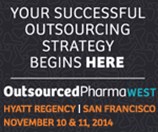Louis Garguilo
ARTICLES BY LOUIS
-
9/24/2014
Kevin Judice lists himself on LinkedIn as “Entrepreneur.” Perhaps he has to; there just isn’t enough space to include the three companies he recently started and at which he concurrently is employed as CEO or CSO.
-
9/22/2014
I’ve enjoyed visits to Boryung, Dong-A, Green Cross, Hanmi, Il-Yang and Yuhan.
Do you recognize these names? How about LG Life Sciences and Samsung Biologics? These are some of the companies clustered in and around Seoul, forming South Korea’s advancing pharmaceutical industry. If they aren’t all global brands yet, chances are more will be in the near future.
Encouraged by highly publicized government initiatives and funding, South Korean pharma (KPharma, for short), already playing a strategic role in the development of global biosimilars, is moving well beyond its myopic domestic and generics focus to new drug discovery and global healthcare markets.
-
9/16/2014
Timothy Scott, co-founder and president of Pharmatek Laboratories, a CDMO focusing on services for small molecules of peptides, has put it all together. Not quite Einstein's quest for a theory of everything, but his synthesis of the outsourcing industry is alluring. Here’s why.
-
9/9/2014
There is nothing “virtual” about GSK’s Virtual Proof of Concept outsourcing program.
VPoC is as real as Shanghai and Hyderabad. As a drug discovery engine, it is as tangible as compounds progressing through the clinic and to late-stage development. According to Allen Oliff, senior vice president at GSK’s Alternative Discovery and Development, and founder and leader of VPoC, it is also the most cost-effective outsourcing on the globe.
Located with his team at GSK’s King of Prussia, PA, facilities, Oliff speaks quietly but with a determination for straightforward explanation regarding the reality in the world of outsourcing as he has experienced it.
-
9/5/2014
The provocative question of the week: Could pharma’s apparent pursuit of deeper relationships in the outsourcing industry limit competition, increase pricing and dampen customer service?
After a period of shared suffering through a global economic malaise, big pharma budget cutbacks and a lack of VC for biotech customers, business in 2014 is good at drug discovery, development and manufacturing providers. You can see it in industry and company earnings reports. In fact, providers seem to be gaining a new (and coveted) centrality in the entire biopharma industry.
-
9/2/2014
Australia just keeps making news.
It was again named one of the “happiest countries” in the world by the OECD. Scientific American Worldview ranked it fourth in 2014 in the global biotech industry, a one-year vault from seventh. For the fourth year in a row, the Economic Intelligence Unit annual Liveability Survey called Melbourne “the best city in the world to live.”
In a recent article on Melbourne-based Fibrotech’s acquisition by Shire, founder and CEO Darren Kelly iterated the value of starting his company within that nurturing life-sciences location. As might be expected with all the rosiness above, providence provided an opportunity to follow-up on that part of the Oceanic continent-country. I met with Michelle Gallaher, CEO of BioMelbourne Network, just prior to her moving from that role to start her own life sciences company in Melbourne.
-
8/19/2014
Here’s hoping this doesn’t rise to the category of grandiloquent theories, but the convergence of two global trends in drug discovery should be considered by business strategists at outsourcing providers as well as pharma sponsors.
-
8/6/2014
The U.K. sounds a challenge to Boston and San Francisco bio-clusters. MedCity is a newly formed organization to support all the life science activity in the region in once compact area (London, Cambridge, Oxford) that forms an equilateral triangle of about 100 miles on each side, The Golden Triangle.
-
8/6/2014
I picked up a copy of Fortune to read on the train home. Before we were out of Penn Station, I was already deep into a section titled “Outsourcing for GOOD.” This 12-page spread in Fortune is a “special advertising section,” which means it offers a clear idea of how outsourcing providers in other industries think about themselves and market their services. Would they have a different tact than service providers for drug discovery, development and manufacturing?
-
7/24/2014
There were many options (and precious time) for a journalist at BIO 2014 in San Diego: pharmaceuticals, biotechs, academia, countries, regions, consortiums and the like. One place I just had to find: Puerto Rico. Where had the Commonwealth gone? Was it still on the map of pharmaceutical development, manufacturing and outsourcing?








